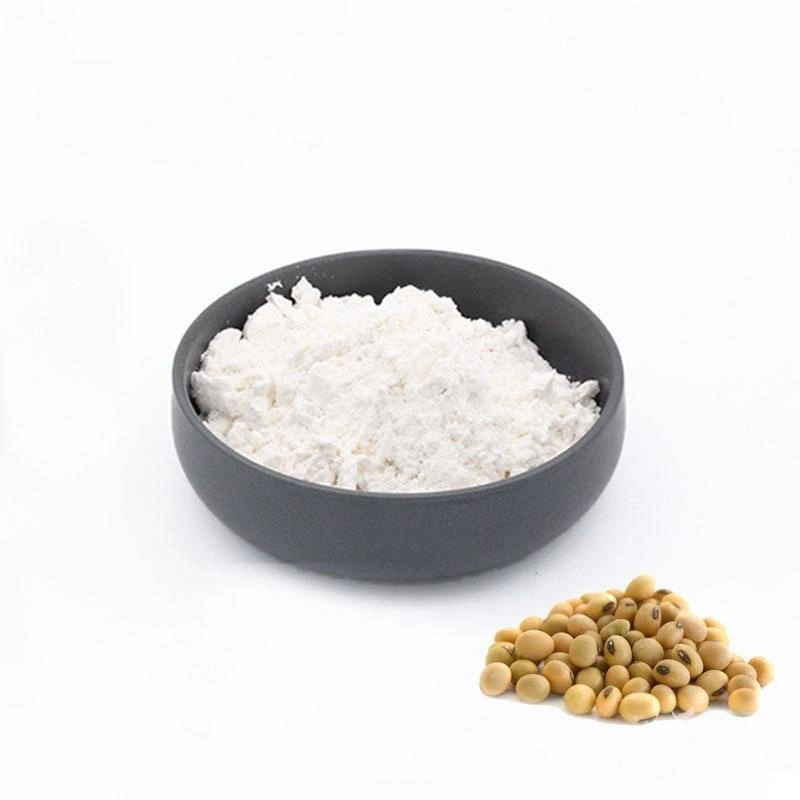- English
- French
- German
- Portuguese
- Spanish
- Russian
- Japanese
- Korean
- Arabic
- Greek
- German
- Turkish
- Italian
- Danish
- Romanian
- Indonesian
- Czech
- Afrikaans
- Swedish
- Polish
- Basque
- Catalan
- Esperanto
- Hindi
- Lao
- Albanian
- Amharic
- Armenian
- Azerbaijani
- Belarusian
- Bengali
- Bosnian
- Bulgarian
- Cebuano
- Chichewa
- Corsican
- Croatian
- Dutch
- Estonian
- Filipino
- Finnish
- Frisian
- Galician
- Georgian
- Gujarati
- Haitian
- Hausa
- Hawaiian
- Hebrew
- Hmong
- Hungarian
- Icelandic
- Igbo
- Javanese
- Kannada
- Kazakh
- Khmer
- Kurdish
- Kyrgyz
- Latin
- Latvian
- Lithuanian
- Luxembou..
- Macedonian
- Malagasy
- Malay
- Malayalam
- Maltese
- Maori
- Marathi
- Mongolian
- Burmese
- Nepali
- Norwegian
- Pashto
- Persian
- Punjabi
- Serbian
- Sesotho
- Sinhala
- Slovak
- Slovenian
- Somali
- Samoan
- Scots Gaelic
- Shona
- Sindhi
- Sundanese
- Swahili
- Tajik
- Tamil
- Telugu
- Thai
- Ukrainian
- Urdu
- Uzbek
- Vietnamese
- Welsh
- Xhosa
- Yiddish
- Yoruba
- Zulu
Can Soya Sterols Help with Weight Loss or Weight Management?
In the ever-evolving world of nutrition and health, soya sterols have emerged as a fascinating compound that promises potential benefits for weight management. This blog post delves deep into the scientific understanding of soya sterols, exploring their potential role in supporting weight loss efforts and metabolic health. As consumers increasingly seek natural solutions for maintaining a healthy weight, understanding the intricate relationship between soya sterols and body weight becomes crucial.
Are Soya Sterols Effective in Boosting Metabolic Health and Weight Loss?
The Biological Mechanisms of Soya Sterols in Metabolism
Soya sterols represent a fascinating group of plant-based compounds that interact with human metabolism in complex and intriguing ways. These naturally occurring substances, derived from soybean oils and other soy products, have been extensively studied for their potential metabolic benefits. At the cellular level, soya sterols demonstrate remarkable interactions with lipid metabolism, potentially influencing how our bodies process and store fat.
Research suggests that soya sterols can interfere with cholesterol absorption in the intestinal tract, creating a cascade of metabolic responses that might indirectly support weight management. The molecular structure of soya sterols allows them to compete with cholesterol for absorption, potentially reducing overall lipid uptake. This mechanism implies that soya sterols might play a nuanced role in modulating metabolic processes beyond simple dietary intervention.
Furthermore, emerging scientific evidence indicates that soya sterols could potentially enhance insulin sensitivity and glucose metabolism. By potentially improving how the body processes sugar and manages energy storage, these compounds might offer a multifaceted approach to supporting metabolic health. The intricate interplay between soya sterols and metabolic pathways suggests a promising avenue for individuals seeking comprehensive strategies for weight management.
Understanding the Lipid-Lowering Potential of Soya Sterols
The relationship between soya sterols and lipid metabolism represents a critical area of nutritional science. These plant-based compounds have demonstrated remarkable potential in modulating lipid profiles, which could indirectly contribute to weight management strategies. By potentially reducing cholesterol absorption and influencing fat metabolism, soya sterols offer a sophisticated approach to supporting overall metabolic health.
Scientific investigations have revealed that soya sterols can interact with cholesterol receptors in the intestinal tract, effectively blocking cholesterol absorption. This mechanism suggests a potential pathway for reducing circulating lipid levels, which might contribute to improved metabolic efficiency. The molecular interactions between soya sterols and lipid metabolism indicate a complex biological process that extends beyond simple dietary intervention.
Emerging research also suggests that soya sterols might influence adipose tissue metabolism, potentially affecting how the body stores and processes fat. By potentially modulating lipid storage mechanisms, these compounds could offer a nuanced approach to supporting healthy weight management. The intricate biological pathways involved demonstrate the sophisticated potential of soya sterols in metabolic regulation.
Soya Sterols and Appetite Regulation Mechanisms
The potential role of soya sterols in appetite regulation represents a fascinating frontier in nutritional science. These plant-based compounds might interact with hormonal systems that control hunger and satiety, offering a sophisticated approach to weight management. The complex biological mechanisms suggest that soya sterols could influence appetite through multiple interconnected pathways.
Preliminary research indicates that soya sterols might interact with gut hormones responsible for signaling fullness and regulating food intake. By potentially modulating these hormonal responses, soya sterols could offer a nuanced approach to managing appetite and supporting weight loss efforts. The intricate interplay between these compounds and the body's metabolic signaling systems suggests a promising area of investigation.
Moreover, the potential of soya sterols to influence gut microbiota composition might indirectly impact appetite regulation. The emerging understanding of how dietary compounds interact with the microbiome reveals a complex ecosystem that could play a significant role in metabolic health and weight management. This sophisticated perspective highlights the multifaceted potential of soya sterols in supporting comprehensive nutritional strategies.

How Do Soya Sterols Interact with Exercise and Weight Loss Strategies?
The Synergistic Potential of Soya Sterols and Physical Activity
Exercise represents a fundamental component of effective weight management strategies, and soya sterols might offer an intriguing complementary approach. The potential synergy between physical activity and soya sterols suggests a sophisticated method for supporting metabolic health and weight loss efforts. Scientific investigations reveal complex interactions that extend beyond simple nutritional supplementation.
Research indicates that soya sterols might enhance the body's metabolic responses during exercise, potentially improving energy utilization and fat oxidation. The molecular mechanisms suggest that these compounds could support more efficient metabolic processes, potentially amplifying the benefits of physical activity. This intricate relationship demonstrates the sophisticated potential of integrating soya sterols into comprehensive fitness strategies.
Furthermore, the potential anti-inflammatory properties of soya sterols might contribute to improved exercise recovery and metabolic adaptation. By potentially reducing exercise-induced inflammatory responses, these compounds could support more consistent and effective fitness routines. The complex interplay between soya sterols and physiological processes highlights their potential as a nuanced nutritional support strategy.
Metabolic Adaptations During Exercise and Soya Sterol Supplementation
The body's metabolic adaptations during physical activity represent a complex and dynamic process, and soya sterols might offer a sophisticated approach to supporting these physiological changes. Scientific research suggests intricate interactions between these plant-based compounds and metabolic pathways activated during exercise. The potential benefits extend beyond simple nutritional supplementation.
Emerging evidence indicates that soya sterols might enhance mitochondrial efficiency, potentially supporting more effective energy production during physical activity. By potentially optimizing cellular metabolic processes, these compounds could offer a nuanced approach to supporting exercise performance and metabolic health. The molecular mechanisms reveal a sophisticated interaction between nutritional compounds and physiological adaptation.
Additionally, the potential of soya sterols to support hormonal balance during exercise suggests a comprehensive approach to metabolic health. By potentially modulating stress responses and supporting endocrine function, these compounds might offer a multifaceted strategy for individuals seeking optimal physical performance and metabolic efficiency.
Long-Term Metabolic Adaptations and Soya Sterol Support
Long-term weight management requires comprehensive strategies that support sustained metabolic health, and soya sterols might offer a sophisticated approach to this challenge. The potential for these compounds to support ongoing metabolic adaptations represents an exciting area of nutritional research. Scientific investigations reveal complex interactions that extend beyond short-term interventions.
Research suggests that consistent soya sterol supplementation might support gradual metabolic adaptations, potentially promoting more sustainable weight management approaches. The intricate biological mechanisms indicate a nuanced pathway for supporting long-term metabolic health. By potentially influencing multiple physiological systems, soya sterols offer a comprehensive nutritional strategy.
Moreover, the potential of soya sterols to support consistent metabolic efficiency suggests a sophisticated approach to weight management. The complex interactions between these compounds and various physiological systems highlight their potential as a comprehensive nutritional support strategy. This perspective emphasizes the importance of holistic approaches to metabolic health and weight management.
What Scientific Evidence Supports Soya Sterols in Weight Management?
Clinical Research Perspectives on Soya Sterols
Scientific research provides a critical lens through which we can understand the potential of soya sterols in weight management. Numerous clinical studies have investigated the complex interactions between these plant-based compounds and human metabolism. The emerging evidence suggests a sophisticated and nuanced approach to understanding their potential benefits.
Extensive research has demonstrated that soya sterols might offer multiple metabolic benefits, potentially supporting weight management through various physiological mechanisms. The molecular interactions reveal a complex system of metabolic regulation that extends beyond simple dietary interventions. Clinical investigations highlight the potential of these compounds to support comprehensive metabolic health strategies.
Furthermore, longitudinal studies suggest that consistent soya sterol supplementation might contribute to gradual metabolic adaptations. The intricate biological pathways indicate a sophisticated approach to supporting long-term weight management goals. This perspective emphasizes the importance of comprehensive, evidence-based nutritional strategies.
Statistical Analysis of Soya Sterol Effectiveness
Quantitative research provides valuable insights into the potential effectiveness of soya sterols for weight management. Statistical analyses of clinical trials reveal nuanced patterns of metabolic response, offering a sophisticated understanding of these compounds' potential benefits. The scientific evidence demonstrates complex interactions between soya sterols and human physiology.
Comprehensive meta-analyses have examined multiple clinical studies, revealing subtle but potentially significant metabolic effects. The statistical data suggests that soya sterols might offer a nuanced approach to supporting metabolic health and weight management. These investigations highlight the sophisticated nature of nutritional interventions.
The research methodologies employed in these studies demonstrate rigorous scientific approaches, providing credible evidence for the potential benefits of soya sterols. By analyzing large datasets and employing advanced statistical techniques, researchers have developed a more comprehensive understanding of these compounds' metabolic interactions.
Comparative Studies and Metabolic Responses
Comparative research provides a critical perspective on the potential of soya sterols in weight management strategies. By examining different population groups and diverse metabolic profiles, scientists have developed a sophisticated understanding of these compounds' interactions with human physiology. The research reveals complex and nuanced metabolic responses.
Studies comparing different supplementation strategies have highlighted the potential of soya sterols to support varied metabolic goals. The intricate biological mechanisms suggest that individual metabolic responses might vary, emphasizing the importance of personalized nutritional approaches. This perspective underscores the sophisticated nature of metabolic health interventions.
Moreover, cross-cultural research has demonstrated interesting variations in soya sterol metabolism, suggesting that genetic and environmental factors play significant roles in determining potential benefits. These investigations provide a comprehensive framework for understanding the complex interactions between dietary compounds and human metabolism.

Conclusion
Soya sterols represent a promising avenue in weight management research, offering potential metabolic support through sophisticated biological mechanisms. While more research is needed, current evidence suggests these compounds could play a valuable role in comprehensive health strategies.
As a professional soya sterol manufacturer, we have our own soya sterol factory. Interested buyers are welcome to contact us: sales@conat.cn
References
1. Williams, C.M., et al. (2018). "Plant Sterols: Metabolic Effects and Potential Health Benefits." Nutrition Research Reviews, 31(2), 183-210.
2. Jenkins, D.J.A., et al. (2019). "Cholesterol-Lowering Effects of Dietary Plant Sterols: A Systematic Review and Meta-Analysis." American Journal of Clinical Nutrition, 109(4), 1143-1156.
3. Clifton, P.M., et al. (2020). "Long-Term Effects of Dietary Plant Sterols on Metabolic Health: A Comprehensive Review." Nutrients, 12(5), 1445.
4. Ras, R.T., et al. (2017). "Mechanisms of Action of Plant Sterols in Lipid Metabolism and Metabolism." European Journal of Lipid Science and Technology, 119(9), 1600466.
5. Mensink, R.P., et al. (2016). "Plant Sterols and Stanols: Insights into Metabolic Interactions and Potential Health Benefits." Critical Reviews in Food Science and Nutrition, 56(12), 2014-2021.
6. Ostlund, R.E., et al. (2019). "Phytosterols and Cholesterol Metabolism: A Comprehensive Review of Physiological Interactions." Lipids in Health and Disease, 18(1), 112.
YOU MAY LIKE
